Turkeys are extremely sensitive birds, especially where it concerns their eating habits and the digestion of feed ingredients. Ignoring this aspect may easily lead to nutrient losses and poor bird performance. Stimulating the development of a stable intestinal microbiota will support turkey health and performance.
Common sense suggests that providing birds with clean feed, water and litter are all fundamental factors to successful turkey production. Unfortunately, in reality it is not that simple. In turkeys, many factors such as bird genetics, health status, nutrition and environment, interact and may create a number of challenges. Two thirds of the production costs in rearing turkeys is feed, and every gram of feed that is not properly used is a loss. It is therefore of utmost importance that birds maintain a balanced intestinal microbiota in order to reach optimal feed digestion. As a result, healthy intestinal integrity, growth and FCR will be reached. In the past, antibiotics were used to support digestion, but their use has led to more and more discussion due to resistance and regulatory restrictions. It is believed that increasing antibiotic resistance in human health is, to a large extent, the result of intensive antibiotic use in animal production. Consumers and legislators are increasingly demanding bans on the preventive use of antibiotics in animal food production.
Improve intestinal health status
In turkey production, Antibiotic Growth Promoters (AGP) are associated with increased nutrient absorption and energy retention. These attributes are reflected in improved weight gain and feed efficiency. Producers are aware of the need to reduce the reliance on routine use of antibiotics and consider ‘antibiotic-free’ as a key objective, although their financial performance remains the primary goal. As analytical techniques improve, the diversity and complexity of intestinal microbiota is revealed, and the impact that interventions such as antibiotic treatment or feed changes can have is better understood. Recent scientific research proves that supporting the intestinal health status is key to the turkey’s performance and profitability, and thereby decreases the need for AGP’s.
Combined approach works
As Nutreco is committed to contribute to increased intestinal health, Selko Feed Additives and Nutreco R&D developed an integrated gut health approach. This includes stabilisation of the microbiota and supporting the mucosal barrier properties. Trials conducted using a synergistic Nutrition blend of organic acids, MCFA’s, slow release C12, target release butyrate and phenolic compounds (Presan) on commercial turkey farms in North West Europe demonstrated major improvements in live weight (+8.5%), FCR (-3.9%) and mortality (-35%). As can be seen from Table 1 each of the trial crops responded differently, as the production conditions evolved. Feed conversion ratios were improved in crops 1 and 3 when Presan was added to the diet in comparison to the pre-trial period. Although the FCR in crop 2 was just above target, the birds finished with a live weight at slaughter which was 19.8% higher than that of the pre-trial period. The positive effect of the synergistic blend of feed additives was especially shown in crop 1 since their live weight at slaughter was 6.6% higher than target, despite a serious E. coli outbreak present in the poults at placement.

A Canadian R&D trial in which in total 116,000 turkeys from six weeks of age till slaughter were used, showed successful results with healthy body weights and improved litter quality (Table 2).

These data support that Presan helps to improve general health status and there-fore decreases the need for AGP’s.
Improved litter quality
In the European trials survival rate was increased, although in crop 1 an early E. coli outbreak seriously affected survival rates, rejects and ‘dead on arrivals’ (DOA’s). In crop 3, the number of DOA’s and rejects were also lower compared to that of the pre-trial period, despite the fact that a roof leaked and subsequent flooding occurred. These results show that even more positive effects of Presan might have been seen without these unforeseen events. Besides traditional technical performance figures the trials also provided data for litter scores and bedding costs. The European trials showed that when Presan was added to turkey feed, litter quality was improved, which is an indication of positive effects on microbial balance. The number of top up bales was reduced by an average of 40.7% compared to the site’s standards. As a result, less time was needed for topping up litter in the houses by the site staff and bedding costs were reduced by 34% on average. Similar results were seen in the Canadian research trial. Here, the litter score was reduced by 16%. Improved litter quality not only means less bedding costs, but also decreased energy costs (heating and ventilation). Even more important is the potential improvement in foot-pad quality, improved final carcass quality and dressed carcass presentation. All in all, economic evaluations in North-West Europe indicated that the value per bird increased between €0.73 and €4.56 per bird when using this blend of feed additives. The results to date support that the microbiota and gut barrier management concept can help to improve the general health status of turkeys and thereby decrease the need for AGP’s.
Source: WORLDPOULTRY, Volume 30, No. 5 2014.

